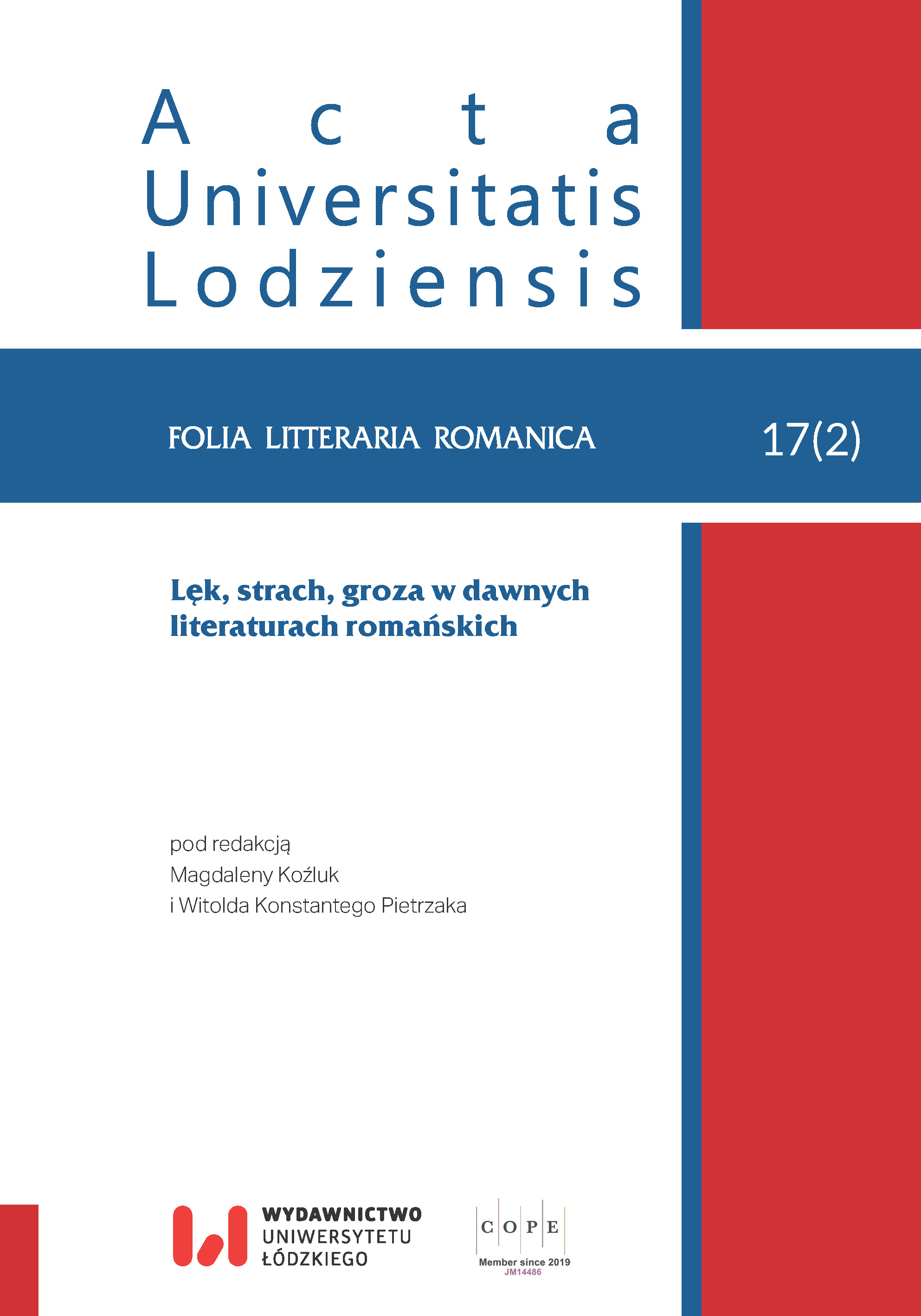La peur comme un outil du pouvoir dans l’Antimachiavel d’Innocent Gentillet
DOI :
https://doi.org/10.18778/1505-9065.17.2.10Mots-clés :
peur, XVIe siècle, Innocent Gentillet, Machiavel, anti-machiavélismeRésumé
Cet article explore la question de la peur comme un outil du pouvoir dans le Discours sur les moyens de bien gouverner d’Innocent Gentillet. Cet auteur protestant a été un témoin du massacre de la Saint-Barthélemy dont il a accusé les catholiques. Dans son ouvrage, Gentillet entre dans la polémique avec Le Prince de Machiavel. Il s’oppose aux idées développées par l’Italien en en donnant plusieurs contre-arguments. Quant à la peur, il évoque une maxime de Machiavel disant que le Prince peut être cruel s’il se fait obéir alors que, pour le Français, la cruauté est la cause de la peur et à l’aide des exemples historiques il prouve que le Prince cruel ne peut pas gouverner longtemps. Le deuxième aspect sur lequel l’auteur se concentre c’est la relation entre l’amour et la crainte. Gentillet n’est pas d’accord avec l’auteur italien qui dit qu’il est impossible de susciter les deux alors il vaut mieux être craint qu’aimé. Le discours d’Innocent Gentillet s’inscrit dans l’ambiance de l’anti-italianisme de l’époque.
Téléchargements
Références
Anglo, Sydney, Machiavelli – The First Century: Studies in Enthusiasm, Hostility, and Irrelevance, Oxford, Oxford University Press, 2005
Google Scholar
DOI: https://doi.org/10.1093/oso/9780199267767.001.0001
Dante Alighieri, Monarchia, tł. Władysław Seńko, Wydawnictwo Antyk, Kęty 2002
Google Scholar
Enciclopedia Machiavelliana, URL: https://www.treccani.it/enciclopedia/innocent-gentillet_(Enciclopedia-machiavelliana), dostęp: 19.11.2021
Google Scholar
Gentillet, Innocent, Discours sur les moyens de bien gouverner et maintenir en bonne paix un Royaume, b. n., b.m. 1576
Google Scholar
Lardon, Sabine, « Les Six Livres de la République de Jean Bodin (1576). La première citation des Serments de Strasbourg », Corpus Eve [Online], Historiographie des Serments de Strasbourg, Online since 10 October 2019, s. 1-58, https://doi.org/10.4000/eve.1781
Google Scholar
DOI: https://doi.org/10.4000/eve.1781
Machiavelli Nicollò, Książę, tł. Czesław Nanke, Wydawnictwo Marek Derewiecki, Kęty 2018
Google Scholar
Ménissier, Thierry, « La Saint-Barthélemy au prisme du machiavélisme : massacre généralisé et intentionnalité politique », Les Cahiers de la Justice, 2011, no 1, s. 15-28, https://doi.org/10.3917/cdlj.1101.0015
Google Scholar
DOI: https://doi.org/10.3917/cdlj.1101.0015
Picquet, Théa, « Machiavel parodié, Machiavel réfuté », Cahiers d’études romanes, 2020, t. 40, URL: http://journals.openedition.org/etudesromanes/10331, dostęp 21.10.2021, s. 51-64, https://doi.org/10.4000/etudesromanes.10331
Google Scholar
DOI: https://doi.org/10.4000/etudesromanes.10331
Rathé, C. Edward, “Innocent Gentillet and the first Anti-Machiavel”, Bibliothèque d’Humanisme et Renaisance, 1965, t. XXVII, no 1, s. 186-225
Google Scholar
Sparano, Antonio, “Natura umana e natura dello Stato in Dante: dall’intelletto possibile allo Stato impossibile”, Scripta Mediaevalia. Revista de Pensamiento Medieval, 2017, URL: https://revistas.uncu.edu.ar/ojs/index.php/scripta/article/view/2651/2511 dostęp 18.11.2021
Google Scholar
Téléchargements
Publiée
Versions
- 2023-08-10 (2)
- 2022-12-30 (1)
Comment citer
Numéro
Rubrique
Licence

Ce travail est disponible sous licence Creative Commons Attribution - Pas d'Utilisation Commerciale - Pas de Modification 4.0 International.











